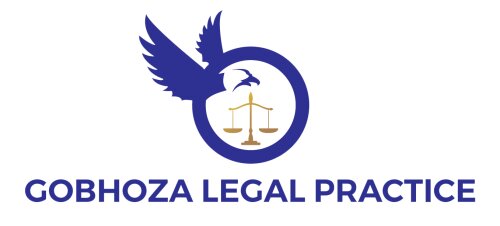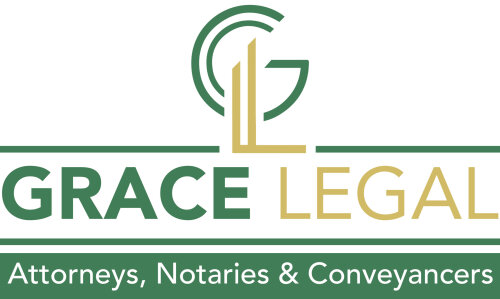Best Financial Services Regulation Lawyers in Gaborone
Share your needs with us, get contacted by law firms.
Free. Takes 2 min.
List of the best lawyers in Gaborone, Botswana
About Financial Services Regulation Law in Gaborone, Botswana
Financial Services Regulation in Gaborone, Botswana, is structured to oversee the integrity, transparency, and stability of the financial sector. This regulatory framework is established to protect consumers and ensure that financial markets operate efficiently. Regulatory bodies, such as the Bank of Botswana and the Non-Bank Financial Institutions Regulatory Authority (NBFIRA), play a crucial role in overseeing the various financial services, safeguarding against unfair practices, and mitigating risks within the financial ecosystem.
Why You May Need a Lawyer
Seeking legal advice in the realm of Financial Services Regulation can be crucial for several reasons. Common scenarios where legal help may be necessary include navigating complex regulatory requirements for setting up or operating a financial services company, compliance with local and international financial regulations, handling disputes with financial institutions, or dealing with the implications of regulatory changes. Lawyers specializing in this field can provide guidance on licensing, aid in negotiations, and help protect personal or business interests against potential violations of financial regulations.
Local Laws Overview
The legal landscape for financial services regulation in Gaborone is primarily influenced by the Financial Services Act and related regulations set by the relevant authorities. Key aspects include the requirement for financial institutions to obtain proper licensing, adherence to anti-money laundering (AML) and combating the financing of terrorism (CFT) standards, and compliance with consumer protection laws. Additional regulatory considerations may involve issues related to data protection, cross-border financial activities, and reporting obligations under Botswana’s financial regulatory framework.
Frequently Asked Questions
What types of financial services require regulation in Botswana?
Financial services such as banking, insurance, pensions, and asset management are subject to regulation in Botswana to ensure they comply with financial laws and standards.
Who are the main regulatory bodies for financial services in Gaborone?
The primary regulatory bodies are the Bank of Botswana, which oversees banking operations, and the Non-Bank Financial Institutions Regulatory Authority (NBFIRA), which supervises non-banking financial activities.
What is the process for obtaining a financial services license?
The process involves submitting an application to the relevant regulatory authority, meeting specific statutory requirements, and demonstrating compliance with the necessary financial service standards in Botswana.
How are consumer rights protected in financial transactions?
Consumer rights are safeguarded through regulations that promote transparency, fairness, and accountability in financial services, ensuring consumers receive accurate information and are protected from fraudulent practices.
What are the penalties for non-compliance with financial regulations?
Penalties may include fines, sanctions, license revocation, or other legal actions depending on the severity and nature of the violation.
How does Botswana address international financial regulations?
Botswana aligns its financial services regulations with international standards, including AML/CFT measures and cross-border financial transaction protocols.
Are there any specific regulations related to digital financial services?
Yes, Botswana has regulations addressing the growing field of digital financial services, covering aspects such as electronic money issuance, mobile banking, and fintech operations.
What should I do if I have a dispute with a financial institution?
You should first attempt resolution directly with the institution. If unresolved, seek legal counsel and, if necessary, escalate the issue to regulatory bodies like NBFIRA or the financial ombudsman.
Is it mandatory for financial institutions to follow corporate governance standards?
Yes, financial institutions must adhere to established corporate governance frameworks to promote ethical behavior, accountability, and transparency in their operations.
How frequently do financial regulations change in Botswana?
Regulations may change periodically as the financial sector evolves and as new risks are identified. It's important to stay informed of any updates or amendments through official communications from regulatory bodies.
Additional Resources
For further information, consider consulting the following resources: the Bank of Botswana for rules on banking operations, the Non-Bank Financial Institutions Regulatory Authority (NBFIRA) for guidance on non-banking financial services, and the Ministry of Finance for overarching financial policies. Additionally, professional legal associations and financial advisory firms can provide valuable expertise and insights into specific regulatory requirements.
Next Steps
If you need legal assistance in Financial Services Regulation, consider consulting a lawyer with expertise in the field. Begin by clearly identifying your legal needs and preparing any relevant documents or information. Schedule a consultation with legal professionals or firms specializing in financial regulations. During your consultation, discuss your situation comprehensively, ask pertinent questions, and ensure you understand the scope of legal services provided to make informed decisions moving forward.
Lawzana helps you find the best lawyers and law firms in Gaborone through a curated and pre-screened list of qualified legal professionals. Our platform offers rankings and detailed profiles of attorneys and law firms, allowing you to compare based on practice areas, including Financial Services Regulation, experience, and client feedback.
Each profile includes a description of the firm's areas of practice, client reviews, team members and partners, year of establishment, spoken languages, office locations, contact information, social media presence, and any published articles or resources. Most firms on our platform speak English and are experienced in both local and international legal matters.
Get a quote from top-rated law firms in Gaborone, Botswana — quickly, securely, and without unnecessary hassle.
Disclaimer:
The information provided on this page is for general informational purposes only and does not constitute legal advice. While we strive to ensure the accuracy and relevance of the content, legal information may change over time, and interpretations of the law can vary. You should always consult with a qualified legal professional for advice specific to your situation.
We disclaim all liability for actions taken or not taken based on the content of this page. If you believe any information is incorrect or outdated, please contact us, and we will review and update it where appropriate.

















